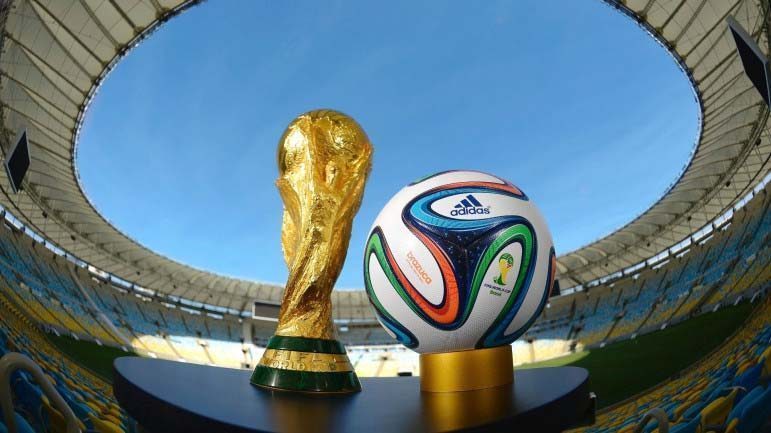
Qatar’s telecom providers could face a network coverage crunch during the 2014 World Cup, if residents here follow the international trend of increasingly viewing matches and highlights on their mobile phones, according to a new report.
The World Cup in Brazil opened to a strong viewership on Thursday, and is expected to attract a record number of eyeballs. Almost half (48 percent) of fans will likely view coverage on their smartphones or tablets, research for US digital advertising firm YuMe has said.
Though the survey only involved some 900 respondents based in the US, one technology expert said Qatar is likely to be no different – adding that the country’s telecom providers should be prepared for a “streaming frenzy.”
In a report issued last month, ictQatar found that nearly 100 percent of Qatar’s population had a mobile phone and that basic internet use was widespread.
Additionally, ictQatar found that 92 percent of all mainstream households here have a smartphone and 96 percent have a laptop. This puts Qatar significantly ahead of other technologically advanced countries such as Singapore (85 percent) and the UAE (74 percent).
Despite potential challenges, Qatar’s providers Vodafone and Oooredoo maintain they are “confident” of their network capacity and do not foresee any problems for mobile viewers.
In a Gulf Times report published today, Steve McCaffrey, senior vice president (EMEA) of technology firm Arris said:
“Qatar will be no exception to this rule. This year Brazil will play host to a ‘mobile’ World Cup.”
Speaking recently at the Arris Video Leadership Forum in Barcelona, McCaffrey said that an expected 310 million people will tune in to watch this summer’s football tournament on a global basis, compared to 188 million who watched the matches in 2010.
He added, as reported by Digital TV Europe, that: “Viewing figures for 2010 versus expected viewing figures for 2014 are exponentially different.”
Survey findings
Key findings of the YuME study included:
- Approximately 50 percent of viewers intend to watch online video of previous World Cup matches;
- Live streaming will be popular across all devices – computers 33 percent, tablets 22 percent, smartphones 11 percent, and smart TVs 13 percent;
- Some 63 percent intend to watch highlights on the computer, 23 percent on smartphones, and 25 percent on tablets; and
- More than 54 percent intend to watch online video of completed matches.
Meanwhile, in a blog post on techzone360.com, Yarob Sakhnini, regional director of MEMA at Brocade Communications, said, “The rise in consuming media through portable devices does raise a challenge for those tasked with ensuring a high level of network performance.”
He called for organizations to invest in more up-to-date and flexible networks which can accommodate people simultaneously using smartphones, tablets, desktops and laptops.
He added:
“Increasing pressure on networks which, all too often, are still reliant on outdated technology, is proving a significant road-block to success.”
Providers’ response
In a statement to Doha News, Vodafone Qatar said that it did not anticipate problems coping with demand.
It continued:
“The World Cup is the most anticipated gaming season of the year so naturally people’s streaming consumption increases significantly during this time.
Vodafone Qatar’s network was designed to accommodate high data usage and therefore we are confident of our network capacity and do not foresee any major issues. We are in day 4 of the World Cup and so far our customers’ streaming experience has been great.”
Oooredoo Qatar told Doha News that it had set up a dedicated technical team to closely monitor network performance during key matches.
In a statement, it added:
“Ooredoo only invests in high-quality and state-of-the-art network infrastructure to provide a nationwide service that will work under high-traffic conditions such as the World Cup.”
And while some residents have reported niggles, so far the networks seem to be holding up.
@LesleyWalker17 @dohanews I would, but since I get my @beINSPORTS_EN through IPTV at The Pearl I can’t access their online/mobile content.
— David Mateski (@Dave8481) June 15, 2014
Meanwhile, Oooredoo today announced the launch of a World Cup mobile portal – the Oooredoo Football Portal – across the Middle East, North Africa and South East Asia.
The package allows customers to watch live matches, 3D videos, play music and taking part in related games on their smartphones.
How are you watching the World Cup? Thoughts?
Note: This article was edited to include a statement from Oooredoo.